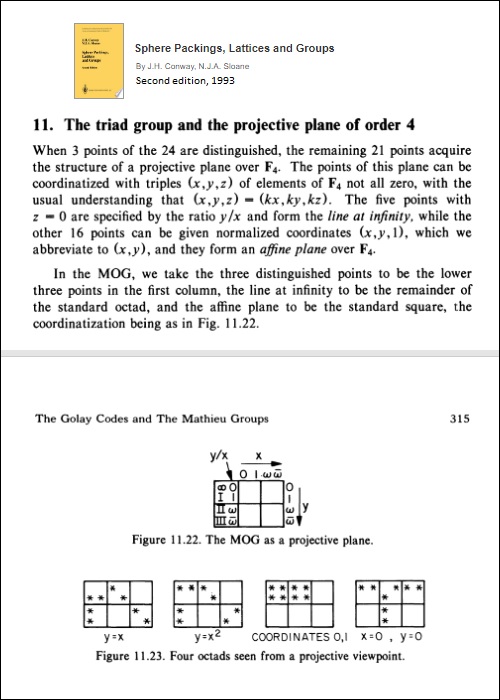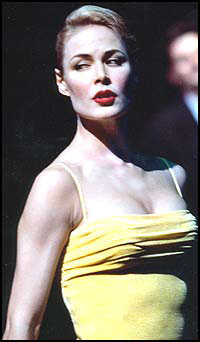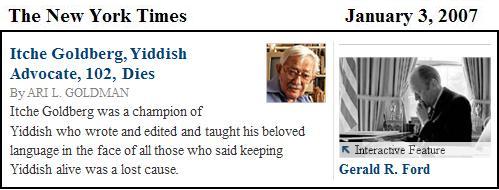
Thursday, November 14, 2024
Aloha.
Saturday, June 12, 2021
Friday, November 15, 2019
Monday, November 6, 2023
Letter from Birmingham Grid
"Just as Socrates felt that it was necessary to create a tension in the mind
so that individuals could rise from the bondage of myths and half-truths
to the unfettered realm of creative analysis and objective appraisal . . . ."
See also today's previous post, from "Terminator Zero: Rise of the Chatbots."
Thursday, November 3, 2022
Dazzled or Baffled?
"If you can't dazzle 'em with brilliance,
baffle 'em with bullshit." — Folk saying
Brilliance —

Bullshit —
A New York Times book review on All Saints' Day 2002 —
"Like every villain, Sill has an origin story. This one involves
the murder of his father and the assassination of Martin Luther King Jr.
As vengeance, Sill resolves to destroy America using a weapon
called a 'complex projective plane orbiter.' What does that mean?
Don’t worry about it."

Related reading: The Aloha Grid .
Wednesday, June 3, 2020
Theology for Jews


See also Aloha.
But see as well . . .

Click to enlarge the above story by Paul Meyer, Dayton sports writer.
Thursday, April 4, 2019
For Harlan Kane . . .
Tuesday, July 17, 2018
Wednesday, August 26, 2015
Ride

"Why don't you come with me, little girl,
on a magic carpet ride?" — Steppenwolf lyrics
Related material for fans of Christopher Alexander
(see previous post) — "The 'Life' of a Carpet."
Thursday, January 4, 2007
Thursday January 4, 2007
Readings for wise men
on the date of
T. S. Eliot's death:
"A cold coming we had of it…."
"… a Church is to be judged by its intellectual fruits, by its influence on the sensibility of the most sensitive and on the intellect of the most intelligent, and it must be made real to the eye by monuments of artistic merit."
— T. S. Eliot, For Lancelot Andrewes: Essays on Style and Order, published by Faber & Gwyer, London, in 1928.
The visual "monuments of artistic merit" I prefer are not those of a Church– except, perhaps, the Church of Modernism. Literary monuments are another matter. I recommend:
The Novels of Charles Williams, and
on style and order:
Eliot's essay on Andrewes begins,
"The Right Reverend Father in God,
Lancelot Bishop of Winchester,
died on September 25, 1626."
For evidence of Andrewes's
saintliness (hence, that
of Eliot) we may examine
various events of the
25th of September.
In Log24,
these events are…

Aloha.

It seems that I am
somewhat out of step with
the Anglican Communion…
though perhaps, in a sense,
in step with Eliot.
Note his words in
"Journey of the Magi":
Birth or Death? There was a Birth, certainly, We had evidence and no doubt. I had seen birth and death, But had thought they were different; this Birth was Hard and bitter agony for us, like Death, our death.
See also entries for
Dec. 27, 2006 (the day of
Itche Goldberg's death) —
— "Least Popular
Christmas Present
Revisited" —
and for the same date
three years earlier —
"If you don't play
some people's game, they say
that you have 'lost your marbles,'
not recognizing that,

while Chinese checkers
is indeed a fine pastime,
a person may also play dominoes,
chess, strip poker, tiddlywinks,
drop-the-soap or Russian roulette
with his brain.
One brain game that is widely,
if poorly, played is a gimmick
called 'rational
Friday, May 19, 2006
Friday May 19, 2006
Meeting at Princeton
From May 15 through May 26, there is a women-only meeting on zeta functions at the Institute for Advanced Study in Princeton, New Jersey. Today’s activities:
| Breakfast (Dining Hall) | |
| T-shirt Sale, Harry’s Bar – Dining Hall | |
| Depart for Princeton University (talks, lunch, campus and art museum tour, and dinner) |
|
From Log24, July 27, 2003: “…my despair with words as instruments of communion is often near total.” — Charles Small, Harvard ’64 25th Anniversary Report, 1989 (See 11/21/02).
|
|
|
Lucero |
See also |
Women’s History Month–
Global and Local: One Small Step
Thursday, March 11, 2004
Thursday March 11, 2004
Sequel
From an entry of July 27, 2003…
|
“…my despair with words as instruments of communion is often near total.” — Charles Small, Harvard ’64 25th Anniversary Report, 1989 (See 11/21/02).
|
|
|
Lucero |
See also |
Catholic Tastes, Part II:
A Catholic priest on “The Passion of the Christ”:
“By the time it’s over, the make-up artists give his skin the texture of spaghetti marinara.”
— The Rev. Richard A. Blake, S.J., professor of fine arts and co-director of the film studies program at Boston College, in America magazine, issue dated March 15, 2004.
Related material:
“I’m waiting for Mel’s sequel:
‘He’s back. Christ Almighty!
The Resurrection.
This time, it’s personal.’ “
Monday, September 29, 2003
Monday September 29, 2003
Magic Hawaii
Today, the birthday of singer Jerry Lee Lewis, is also the feast of St. Michael and All Angels.
In honor of Lewis:
Killer Radio, an entry of July 31, 2003, that contains the following…
“When the light came she was sitting on the bed beside an open suitcase, toying with her diamond rings. She saw the light first in the depths of the largest stone.”
— Paul Preuss, Broken Symmetries,
scene at Diamond Head, Oahu,
Hawaii
In honor of the angels:
Mathematics as an Adequate Language,
by Israel Gelfand, Sept. 2, 2003, which contains the following…
“Many people consider mathematics to be a boring and formal science. However, any really good work in mathematics always has in it: beauty, simplicity, exactness, and crazy ideas. This is a strange combination. I understood earlier that this combination is essential on the example of classical music and poetry. But it is also typical in mathematics. It is not by chance that many mathematicians enjoy serious music.
This combination of beauty, simplicity, exactness, and crazy ideas is, I think, common to both mathematics and music.”
These qualities seem also to be sought by practitioners of religion and physics… for example, by the spiritually-minded physicist in Preuss’s Broken Symmetries. Skeptics might prefer, to the word “religion,” the word (pronounced with a sneer) “magic.”
What do we find if, following in the footsteps of Gelfand and Preuss, we do a Google search on the following words…
The search yields two results:
-
The Pupil: Poems by W. S. Merwin.
The above link is to a poem, “Prophecy,” that seems suitable for these, the High Holy Days at the end of one year and the beginning of another.
For a follow-up to the poem, see
The Shining of Lucero. - “Striking Through the Mask, or
The Allegorical Meanings
in Moby Dick.”
These two selections, both on the theme of light and darkness, offer a language that is perhaps more adequate than mathematics for dealing with the nature of the High Holy Days. For a more lighthearted approach to these concerns, also with a Hawaiian theme, see
Friday, September 26, 2003
Friday September 26, 2003
Time is a Weapon
“Time is a weapon, it’s cold and it’s cruel.”
— Max D. Barnes song lyric,
sung by Ray Price
(See Aug. 1, 2003, entry.)
3:57
was the time of yesterday afternoon’s entry,
|
|
The Friday, |
“Only through time time is conquered.”
— T. S. Eliot, Four Quartets
Friday September 26, 2003
A Mass for
Rosh Hashanah
In memory of playwright Herb Gardner, who died on Wednesday, Sept. 24, 2003, in honor of the Jewish New Year, Rosh Hashanah, which begins at sunset today, and in celebration of T. S. Eliot’s birthday, which is today, here is an illustrated Mass from the Catholic News Service dated Sept. 24 (Saint Herb’s Day):
|
Proposed Vatican document on liturgy returned to drafting committee ROME (CNS) — A proposed Vatican document on liturgical norms was sent back to its drafting committee after cardinals and bishops raised some objections and encouraged some changes. Among other things, the draft presented to consulting prelates in June reportedly discouraged the distribution of Communion under the forms of both bread and wine and said altar girls were permissible only for a good reason. |
See also the two previous entries,
and “Max’s Hawaiian Ecstasies” in
Gardner’s play “The Goodbye People.”
For a musical accompaniment to this
requiem for Gardner,
the “Aloha Mass,”
click here.
Among
those
at the
Mass:

The Mass, at Max’s Hawaiian Ecstasies
in Paradise, will conclude with
“Simply Irresistible,” sung by
Saint Robert Palmer and performed by…

The role of the congregation will, as usual,
be performed by George Plimpton.
Payment for our sins will be made by
Johnny Cash.
Thursday, September 25, 2003
Thursday September 25, 2003
In Memory of Playwright
Herb Gardner
“Up for auction is a Hawaiian hula girl music box. It plays ‘Tiny Bubbles’ and spins around. It is approx. 12″ tall and the top part of the body is made of hard plastic. It is in great condition.”

Aloha.
Sunday, July 27, 2003
Sunday July 27, 2003
Catholic Tastes
In memory of New York Times music critic Harold C. Schonberg, who died Saturday, July 26, 2003:
Nous Voici Dans La Ville – A Christmas song from 15th century France (midi by John Philip Dimick).
In memory of my own youth:
 |
Formaggio Address Paseo del Conquistador # 144 Food Type Italian Dress Casual Tel 777-313-0584 Comment Chef Lorenzo Villagra is formally trained in Italian Cuisine. Great food and views of the valley of Cuernavaca. |
In memory of love:
Volverán del amor en tus oídos
Las palabras ardientes a sonor;
Tu corazón de su profundo sueño
Tal vez despertará;
Pero mudo y absorto y de rodillas,
Como se adora a Dios ante su altar,
Como yo te he querido…desengáñate,
¡Así no te querrán!
— from “Rima LIII“
by Gustavo Adolfo Bécquer
(1836-1870)
Translation by Young Allison, 1924:
Burning words of love will come
Again full oft within thine ears to sound;
Perchance thy heart will even be aroused
From its sleep profound;
But mute and prostrate and absorbed,
As God is worshipped in His holy fane,
As I have loved thee…undeceive thyself:
Thou wilt not be thus loved again!
The Robert Lowell version of
the complete poem by Bécquer:
Will Not Come Back
(Volverán)
Dark swallows will doubtless come back killing
the injudicious nightflies with a clack of the beak:
but these that stopped full flight to see your beauty
and my good fortune… as if they knew our names–
they’ll not come back. The thick lemony honeysuckle,
climbing from the earthroot to your window,
will open more beautiful blossoms to the evening;
but these… like dewdrops, trembling, shining, falling,
the tears of day–they’ll not come back…
Some other love will sound his fireword for you
and wake your heart, perhaps, from its cool sleep;
but silent, absorbed, and on his knees,
as men adore God at the altar, as I love you–
don’t blind yourself, you’ll not be loved like that.
|
“…my despair with words as instruments of communion is often near total.” — Charles Small, Harvard ’64 25th Anniversary Report, 1989 (See 11/21/02).
|
|
|
Lucero |
See also |
See, too, my entry for the feast day of
Saint Gustavo Adolfo Bécquer,
which happens to be December 22.
Monday, September 2, 2002
Monday September 2, 2002
Elevation of the Host
Some religious fanatics may be offended by my account, in the note below, of a theatrical bartender-priest at Lincoln Center who last night held a CD aloft in what may seem a parody or satire of the elevation of the host in the Mass. They should consider the following account of how a medieval nun viewed the host:
…she saw a great brightness between the priest’s hands, so vivid and so bright and of such wonderful beauty that in her opinion it could not be compared to anything the human spirit could imagine. And it seemed to her that this brightness had a circular shape….
For another appearance of a priest associated, if only by synchronicity, with Lincoln Center, see the photographs below, both from the New York Times obituaries section of Friday, August 30, 2002.
 |
Richard Lippold, a sculptor known for radiant, expansive abstractions in metal, died on Aug. 22…. Richard Lippold’s ‘‘Orpheus and Apollo’’ at Avery Fisher Hall in 1996. Jack Manning/The New York Times |
 |
Bill Wassmuth, a former Roman Catholic priest who opposed the Aryan Nations group in northern Idaho, died on Tuesday, Aug. 27. |
In this little drama of August 30, played out in the obituary section of the New York Times, it is not clear from the Lippold sculpture who is to play the role of Orpheus and who the role of Apollo. One might interpret the note below, written two days later, as implying that Orpheus is to be played by Lionel Hampton and Apollo by Christ himself. Such a drama is neither parody nor satire. It is, on the contrary, deadly serious.
“A great brightness,” as seen by the medieval nun described above, is traditionally associated with the Aryan sun god Apollo. For more on this theme in Roman Catholic art, see
The Monstrance and the Wafer God, and
For a less dogmatic approach to these matters, see my journal note of June 13, 2002,
















